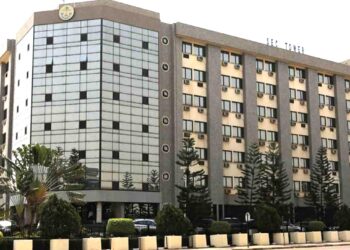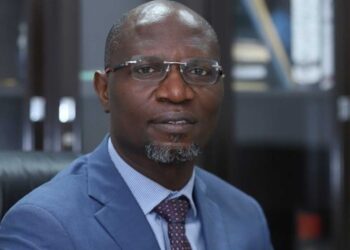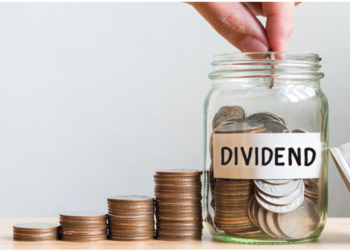Very recently, the Director-General of the Security and Exchange Commission, (SEC), Mr Lamido Yuguda, hinted that the value of unclaimed dividends in Nigeria has grown to about N170 billion. Mr Yuguda blamed the surge on the introduction of the Bank Verification Number, BVN, as the process now entails that the name of the unclaimed dividend beneficiaries has to be matched with their bank accounts.
According to him, the process has added or exacerbated the unclaimed dividend problem because of the identity management issue the BVN system has introduced. Added to that problem is what he called, “the multi subscription problem” because, according to him, some investors bought shares with false names which are now difficult to match with their actual names as they appear on the BVN or bank accounts.
It is quite unthinkable that one would buy shares with false names unless one is buying with ill-gotten funds. The only reason that sounds tenable is that some investors might have invested in the names of their minor children as a means of leaving some legacy or wealth to them.
Be that as it may, there should be a solution to the ever-lingering issue of unclaimed dividends but it does not look like the SEC and the companies are doing enough to put this issue to bed. For example, I filled out the required forms and sent them to Investment One over two and a half years ago, but till date, I have not received my dividends. I bought the shares in my name, the same name that is on my bank account. So, the identity management problem noted by the Director-General may not be it.
Escheatment
In an attempt to solve the problem, the Federal Government decided to treat unclaimed dividends like the abandoned property of the post-war era using its Escheatment rights. Thankfully, the government has been stopped from doing that by one of the courts.
Escheatment is the transfer of a supposedly abandoned property to the state because the owner has died or cannot be traced. The invocation of Escheatment is not unique to Nigeria. It is and has been used by many states and countries. In India, for example, unclaimed dividends are transferred to the Investor Education and Protection fund, and in the United States, different states have different statutes on escheatment. In Pennsylvania, for instance, Section 1707(b) of Pennsylvania’s Business Corporation Law of 1988 (15 Pa. C.S. § 1101, et seq.) empowers the state to take over unclaimed property (of which dividends is one) after about 24 months.
Mandatory dividend reinvestment
The value or number of unclaimed dividends in Nigeria do not have to continue to grow, there has to be a solution. That solution seems to lie with mandatory dividend reinvestment.
Mandatory dividend reinvestment involves buying additional shares for investors that are on the unclaimed dividend list at the current market price. For example, assuming John bought 1000 shares of First Bank of Nigeria (FBN) shares for which he has unclaimed dividend of N100. Instead of looking for his bank account or his BVN for a match, all that is required is for the registrar or investor relations department or custodian for FBN to buy additional 13 shares for John, at the current price of N7.25 for FBN shares.
In that case, John now has 1,013 and no unclaimed dividends shares rather than the 1,000 shares and N100 of unclaimed dividends he had before. This process is even easier now that stock ownership in Nigeria has been dematerialized and stocks are held in street names rather than via share certificates. This process has the advantage of energizing the stock market because it will entail pumping N170 billion into the stock market and the multiplier effect can be amazing. However, in order not to overheat the market, the mandatory reinvestment should be done in phases.
The use of stock dividends
In the alternative, the process of reinvestment can be done through the issuance of stock dividends rather than cash dividends. Ordinarily, in a stock or cash voluntary corporate action, investors are allowed to choose if they want their dividends in cash or as additional stock. After the choice, cash dividends are paid to those who choose to receive cash while additional shares are issued to those who choose stock dividends.
In like manner, through its escheatment right, the government can mandate that those who have not claimed their dividends have invariably elected to receive stocks rather than cash. In that case, the companies will take back the unclaimed dividends and issue stock dividends to the affected investors by increasing their shareholding of the company shares. The companies can even do this by reissuing its treasury stocks. This method has the advantage of providing additional cashflows to the companies, money that could be used to achieve some of the production goals of the company or used to manage its operating or financial leverage.
Dilution concerns
The only concern with this solution is that it may create some dilution effects because those who have unclaimed dividends, to whom additional shares have been issued, will now have slightly higher proportionate ownership of the company than those who received cash for their dividends. Come to think about it, it is not dilutive in essence because it is akin to someone receiving the cash dividend and using same to buy additional shares.
The other concern is that the issue of stock dividends or additional stock in lieu of cash dividends may require extraordinary shareholder approval but with government support, there is no doubt that shareholders will approve of such arrangement.
It is a win-win
The beauty of this solution is that there is no need for BVN and bank statement matching or identity management, the additional shares will be issued in the name of the original investor, the unclaimed dividends are by so doing, recycled into the stock market which in turn will increase activities in the market benefiting other investors and the economy as a whole.


















